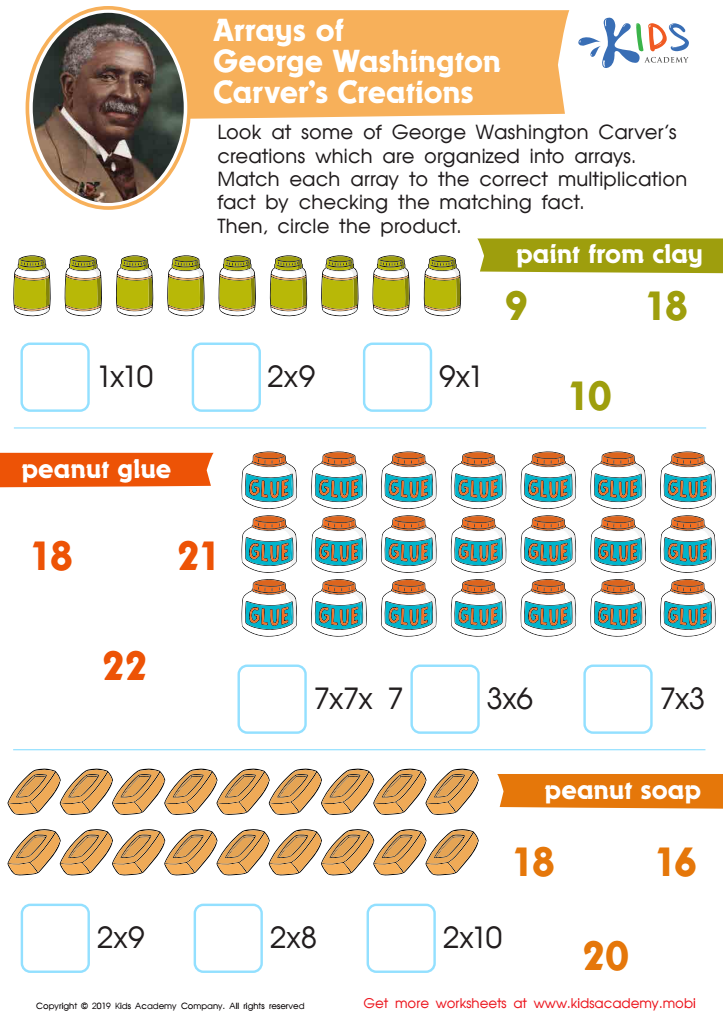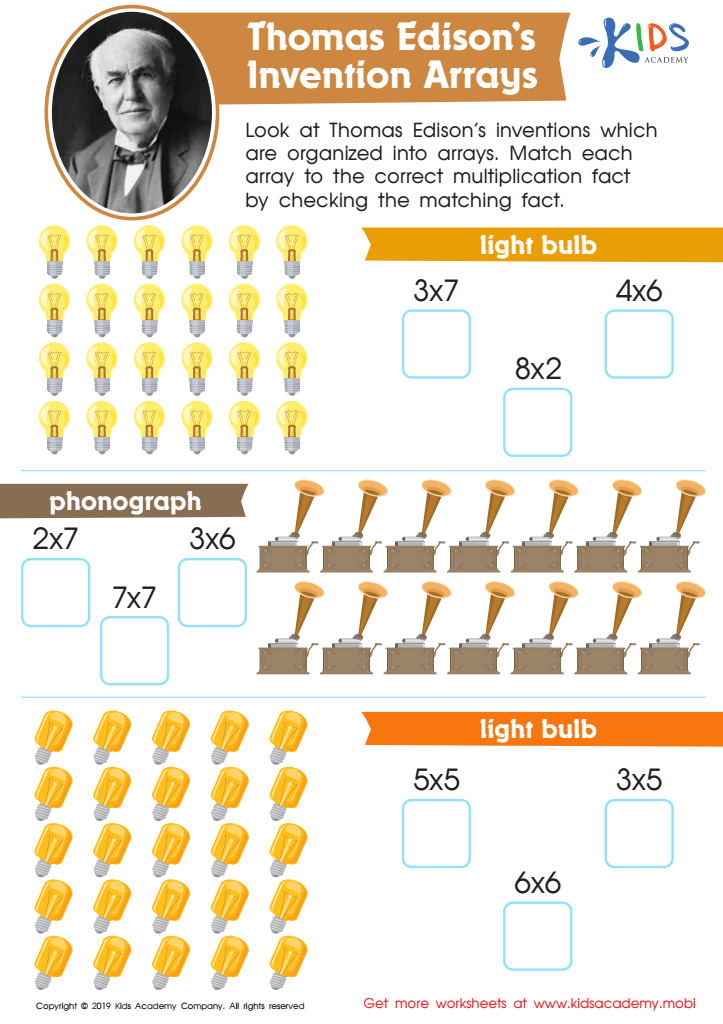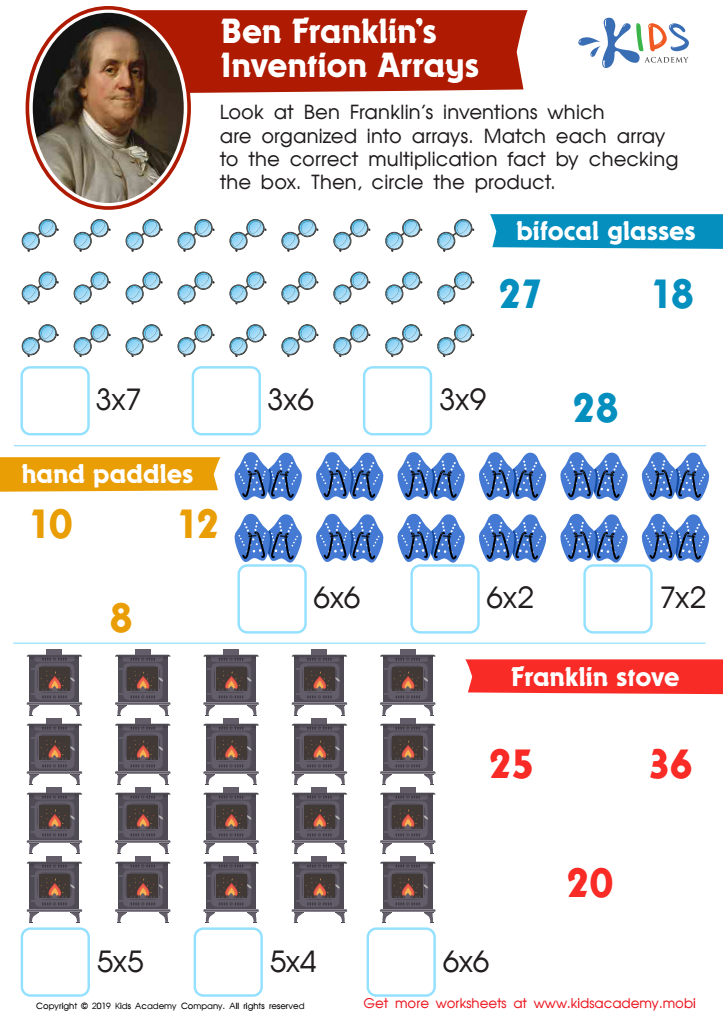Historical Knowledge Normal Arrays Worksheets for Ages 5-9
3 filtered results
-
From - To
Explore our engaging Historical Knowledge Normal Arrays Worksheets designed for children aged 5-9! These interactive resources combine history with math, helping young learners grasp array concepts while discovering fascinating historical contexts. Each worksheet features captivating illustrations and age-appropriate tasks that make learning fun and effective. Children will enhance their understanding of arrays through creative activities linked to important historical figures and events. Perfect for classroom use or at-home learning, these worksheets foster both mathematical and historical knowledge. Ignite your child's curiosity and support their educational journey with our thoughtfully designed materials! Visit now to download and widely enrich their learning experience!


Arrays of George Washington Carver’s Creations Worksheet


Thomas Edison’s Invention Arrays Worksheet


Ben Franklin’s Invention Arrays Worksheet
Historical Knowledge Normal Arrays (HKNAs) for children aged 5-9 are crucial because they provide a structured approach to understanding historical concepts. At this formative stage, children develop foundational cognitive and social awareness, making it essential for parents and teachers to engage them with age-appropriate historical knowledge that aligns with their developmental abilities.
HKNAs help in organizing historical facts into relatable narratives, emphasizing connections between past and present. By incorporating various themes through stories, they foster critical thinking and contextual understanding. This method not only nurtures curiosity about the past but also cultivates essential literacy skills, broadens vocabulary, and enhances comprehension abilities.
Furthermore, HKNAs support social-emotional development. Learning about diverse cultures and historical figures fosters empathy and understanding, paving the way for tolerance and respect for others. These insights also encourage discussions about moral lessons and values resonant with young learners.
Ultimately, by focusing on HKNAs, educators and parents are equipping children with vital skills that transcend mere rote memorization. They promote a lasting interest in history, contribute to a well-rounded education, and lay the groundwork for informed and engaged future citizens. Therefore, supporting an early understanding of history is a valuable investment in children's comprehensive development.
 Assign to My Students
Assign to My Students















